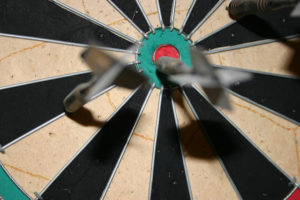How Can I Become Financially Free?
Is everyone spending a ton of money and having fun on Spring Break?
If you check social media, it sure seems that way. All of your friends are on the beach, skiing in the mountains, or people watching at a café in Europe.
But that’s not reality.
The fact is that not everyone is living it up- although some are. Those friends and relatives that are on trips may have carefully saved money to make that happen.
They may be financially free.
So, how can you make that happen for yourself?
If you’re struggling after a financial setback, this article may help.
It’s a journey, and it takes self-discipline and- hold your breath- delayed gratification. Fortunately, I’ve noticed that the millennial generation (those who are currently between 22 and 37 years old) is a lot less focused on material items, which makes delayed gratification easier.
Here’s how you can become more financially free:
Get free sample chapters for my book: Not Another Personal Finance Book.
Discipline and time
With discipline and time, I think most people can accumulate far more wealth than they think is possible. But growing wealth requires change- which is precisely why most people don’t make the effort.
Delay gratification
Be willing to delay gratification. Some decisions are relatively small:
- Dropping a subscription music service and just listening to the free version (Pandora, for example).
- Making coffee at home two days a week, which means that you stop by Starbucksless often.
- Buying afew more generic products when you go to the grocery store and Target. (I’m not going generic on salad dressing, however).
Since these are smaller decisions, the amount of gratification you’re delaying is small. You don’t mind listening the commercials on Pandora (I certainly don’t- I just turned down the sound), and the coffee at home isn’t bad.
Other decisions are much bigger. StudySoup wrote this great article on the average amount of money a college student saves by having a roommate. The average savings over four years is over $15,000. Now, having a roommate is a big sacrifice, because you lose a fair amount of privacy. If privacy is really important to you, it’s a true delay of gratification (until you graduate, get a job and can afford to live alone).
So, what do I get?
OK- so what do I get out of all this delayed gratification?
You build wealth- which can give you peace of mind.
Here’s a practical example: By making changes to your spending and building a savings account, you create a $1,000 emergency fund. If your car brakes down, you can pay for the repair.
Create a budget, and move funds into a savings account
- Create a budget, even if that budget is simply on notebook paper.
- Separate your expenses between fixed and variable, and take a hard look at your variable spending.
- Take steps to cut your variable expenses each month and put the amount you save into a separate savings account.
Monitor your spending and your budget
- Consider using a budgeting app to monitor your spending, and
- Set up a separate bank account to discipline yourself to save.
- Save 5% of your monthly gross income
Use a retirement account to invest- through an employer, or on your own
- Carefully review each retirement plan offering from your employer.
- Ask about the tax-deferred investing component of your firm’s retirement plan. Do your investments grow tax-deferred?
- If you’re self-employed, ask financial advisor about your investment options
Follow these steps, and you’ll be on the road to financial freedom.
Oh- and ignore all those beach photos on Instagram…
Good luck!
Ken Boyd
Author: Cost Accounting for Dummies, Accounting All-In-One for Dummies, The CPA Exam for Dummies and 1,001 Accounting Questions for Dummies
Co-Founder: accountinged.com
(email) ken@stltest.net
(website and blog) https://www.accountingaccidentally.com/
(you tube channel) kenboydstl
This post was originally posted on my Quora page. This post is for educational purposes only.
Image: Bullseye, Jeff Turner CC by 2.0


